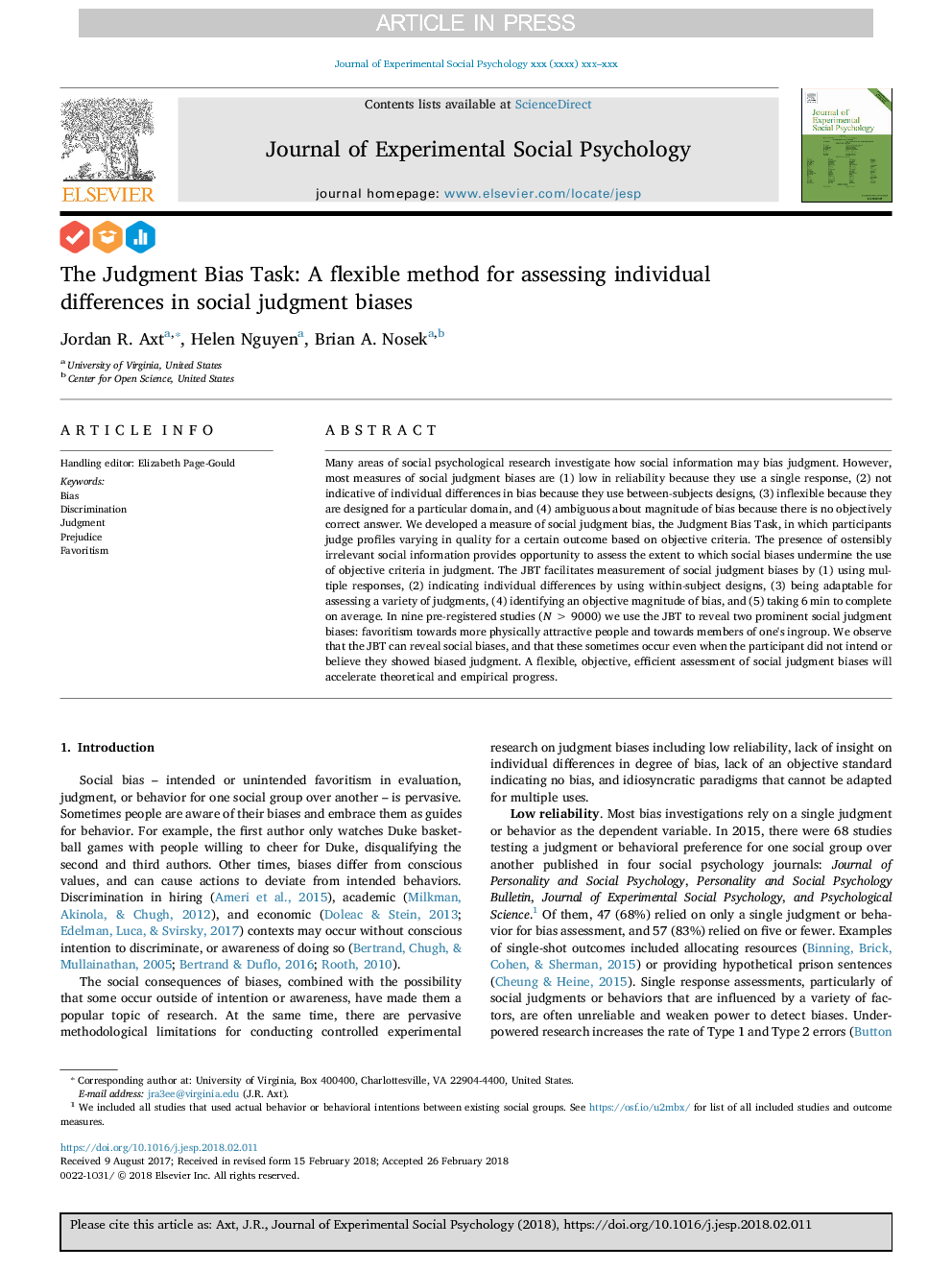ترجمه فارسی عنوان مقاله
وظیفه قصور قضاوت: یک روش انعطاف پذیر برای ارزیابی تفاوت های فردی در تعصبات قضاوت اجتماعی
عنوان انگلیسی
The Judgment Bias Task: A flexible method for assessing individual differences in social judgment biases
| کد مقاله | سال انتشار | تعداد صفحات مقاله انگلیسی |
|---|---|---|
| 130048 | 2018 | 19 صفحه PDF |
منبع

Publisher : Elsevier - Science Direct (الزویر - ساینس دایرکت)
Journal : Journal of Experimental Social Psychology, Volume 76, May 2018, Pages 337-355
ترجمه کلمات کلیدی
تقصیر تبعیض داوری، تعصب، انتخابات
کلمات کلیدی انگلیسی
Bias; Discrimination; Judgment; Prejudice; Favoritism;

